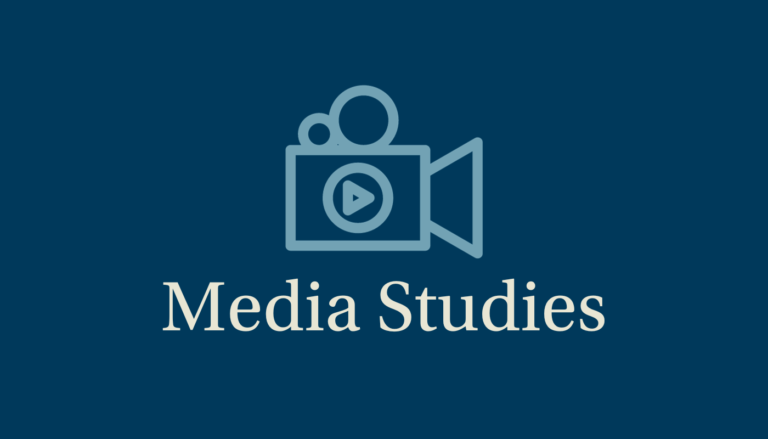Media Studies

During the course you’ll have full use of our excellent new facilities including: A digital editing suite equipped with 25 dual-screen PCs and the full Adobe package including Photoshop and Premiere Pro, a designated photography studio, media lecture rooms with digital projectors ad interactive whiteboards as well as a full range of Canon DSLR digital cameras, Go Pro cameras, tripods, audio equipment lighting and a track and dolly. Topics you will study include different media forms such as film, video games, music videos, radio broadcasts, magazines, online media and advertisements.
You will also research, plan and create a cross media production, for example a music video for a new up and coming artist or a full range of film artefacts including DVD covers and posters.
We actively encourage our students to become young film-makers and enter their work into a variety of festivals and competitions. Students have taken part in a range of educational trips including visits to both mainstream and independent cinemas and to Media Live conferences in Disneyland Paris where students had the opportunity to listen to and interact with several guest speakers from different areas of the media industry. We also encourage students to take up work experience during half terms and summer breaks in order to further their own practice both in and out of College.
Many students go on to study at university in a range of subject fields, including marketing, journalism, film production, special effects and cultural studies. Students also undertake placements and apprenticeships in the field and have secured very successful careers in the media industry. This course allows students to develop those critical skills that are transferable to other areas of study and employment.
Media Product, Industries and Audiences – Exam Paper – 35% of marks
Media Forms and Products – Exam Paper – 35% of marks
Cross Media Production – Coursework – 30% of marks
Summary
Component 1:
In this component, learners will develop knowledge and understanding of key aspects of the theoretical framework- media language and representation – as an essential basis for analysing media products from a variety of forms. In addition, learners will study products from specific media industries and for specific audiences to develop their knowledge and understanding of
those areas of their theoretical framework. Learners will also explore how media products relate to their social, cultural, historical, political and economic contexts. In this component learners will develop their ability to use relevant subject specific terminology and theories.
Component 2:
In this component, learners are required to study three media forms in depth, exploring all areas of the theoretical framework- media language, representation, audience and media industries in relation to audiovisual, print and online products. The forms to be studied in depth are:
– Television
– Magazines
– Blogs and Websites
Leaners will explore these three media forms through close analysis of the set products, comparing their use of media language and the representation they offer in relation to relevant social, cultural, economic, political and historical contexts. Learners will study the role of
media industries in shaping media products, as well as considering the way in which both mass and specialised audiences are targeted and addressed. Relevant and advanced theories will inform study of the set products and learners will reflect critically upon these theoretical
perspectives.
Component 3
This component synthesises knowledge and understanding of the media theoretical framework gained through their course by requiring learners to apply their knowledge and understanding of the media synoptically to practical production. In components 1 and 2, learners gain a detailed understanding of the theoretical framework in relation to a range of media forms. In this component, learners are required to apply their knowledge and understanding of media language, representation, audiences, media industries and the digitally convergent nature of the media in an individual production for an intended audience. The production will be based on two media forms and completed in response to a choice of briefs set by the exam board.
It is useful for students to read around the subject and take an in-depth look at each individual industry to be studied, including television, advertising, music, film, magazine, radio, newspapers and online media. The career progression and university choices within this industry alone expand across a multitude of different sectors including journalism, advertising and marketing, production, radio and business.
Students should take time to research the variety of career options and university courses available to them by visiting university websites. For exam board specific books please contact the Media Department direct for suggestions.
Study Level
A Level
Exam Board
Eduqas
Contact Details
Miss A Malyon
Head of Department
malyon_a@sjd.ac.uk
